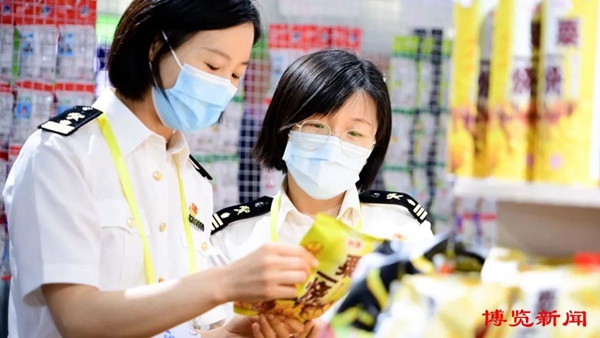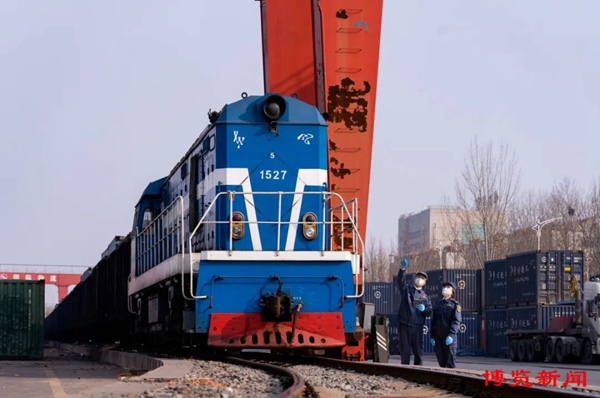
The total exports of Zibo city – situated in East China's Shandong province – hit 33.93 billion yuan ($4.99 billion) in the first half of the year, up 21.8 percent year-on-year, according to the latest statistics from Zibo Customs.
What's more, the customs office reported that the growth rate in the six months was 8.6 percentage points higher than the national average.

Zibo Customs officials diligently check goods. [Photo/WeChat ID: zibofabu2014]
The city's sterling performance in exports was mainly attributed to the global economic recovery and regional cooperation.
Countries are speeding up the process of repairing their industrial supply chains and demand for intermediate goods is picking up. The exports of intermediate products in Zibo reached 25.69 billion yuan in the first half, contributing 116.8 percent to the overall growth in exports.

A freight train leaves Zibo. [Photo/WeChat ID: zibofabu2014]
The RCEP agreement – the massive Asia-Pacific trade pact that is slashing tariffs between member states, including China and which took effect at the start of the year – is also reported to have boosted the development of foreign trade in Zibo. The city issued 2,062 RCEP certificates of origin – a kind of passport for traded goods – for products valued at 630 million yuan and involving tax cuts of 6.3 million yuan in the first half, earning Zibo a better position in the foreign trade industrial supply chain.
Moreover, the growth rate of Zibo's foreign trade exports in the second quarter increased significantly compared with the first quarter. This was due to the strong growth momentum with its main trading partners – excluding the US – and the expansion of private firms.
Exports by private firms surged to 26.24 billion yuan in the first half, up 34.8 percent, accounting for 77.3 percent of the total value of exports. In terms of the composition of the business entities exporting goods, the market players of Zibo are reported to be more diverse compared with other cities in the province.
Plans are for Zibo to stabilize and energize its foreign trade. This will involve fostering emerging industries, supporting the construction of high-level online trading platforms and optimizing the commercial environment.